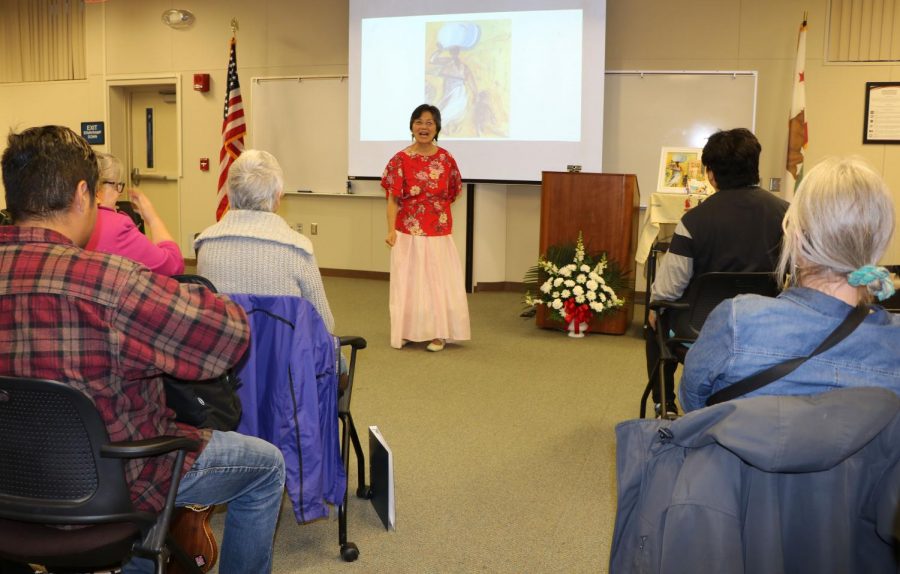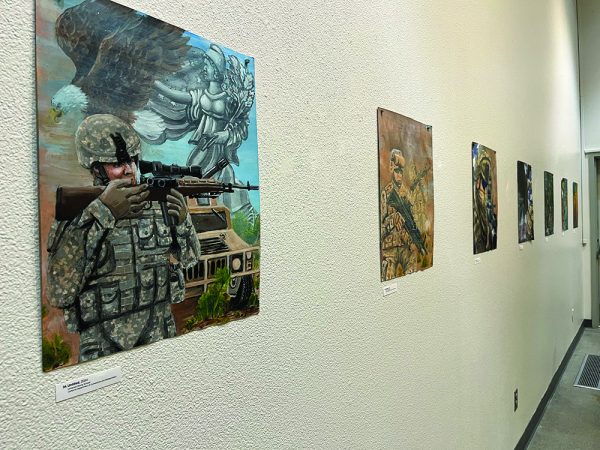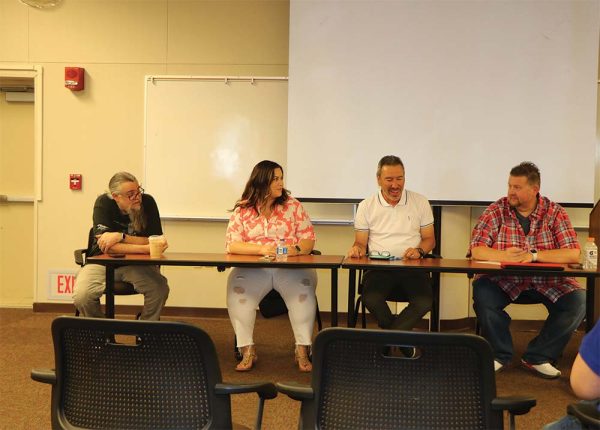Speakers talk and perform as part of a series for Women’s History Month
Portia Choi gives a presentation about the history of Korea and reads some of her poetry from her book.
March 27, 2019
As part of Women’s History Month and More (WHAM), the Levan Center at Bakersfield College hosted, “Exhume and Release: An Evening of Poetry, Art and Storytelling” with Portia Choi and local artists on March 20.
BC students and staff attended the event and listened to various poets and storytellers who spoke about the topic of war.
Jessica Martinez, an English professor at BC who coordinated the event, thanked the sponsors of the event and introduced the poets and storytellers.
The event began with an open mic.
The first poet to speak was Anke Hodenpijl.
Hodenpijl said her family is part Dutch and Indonesian, and have been affected by at least two wars.
Hodenpijl said the word Indo “used to be a word equal to using the word n—– in this country.”
The poetry she wrote for the event was titled, “We Here,” and she wrote it to help the audience understand what had happened in Indonesia during the times of war from her family’s perspective.
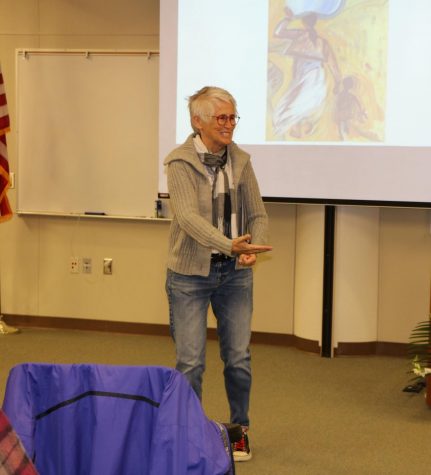
Anke Hodenpijl was one of the many poets that spoke on the topic of war at the Levan Center on March 20.
After the Japanese occupation of the Philippines between 1942-1945, Hodenpijl’s parents survived only to endure the new national revolution.
“Fear called in the middle of the night with loud raps at the door, young locals armed with knives, pistols, and rifles ransacked the house regularly. My mother kept the last of the cash under my sleeping baby’s sisters head, my mother gambled well. The looters would stop at the crib ‘piece of kin’ they mocked, dirty because she was mixed race and left her undisturbed,” she said.
The next to speak was Anna Marco, the daughter of two military veterans.
Marco’s mother is an Italian American descendant who was a USO dancer during WWII. Marco’s father migrated to the United States from Athens Greece and served in the Korean War. She said she was a battered child because of her father’s PTSD.
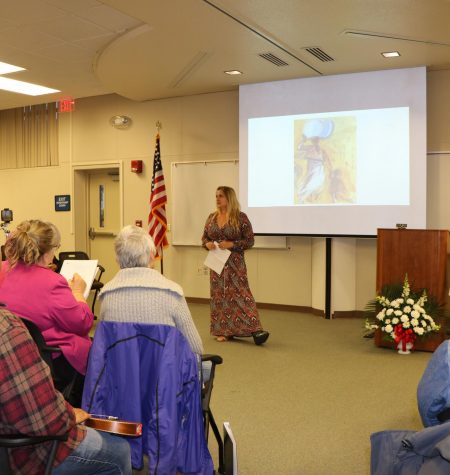
Anna Marco reads a short story about her parents’ PTSD as the result of serving in the military.
After Marco reported her father for child abuse twice, her father went to the veteran’s administration where he was diagnosed with IED (Intermittent explosive disorder).
She wrote a story for the Hecktoen International which is a journal of medical humanities, and was published anonymously.
The short story was about her parent’s PTSD and the painful childhood she and her brother endured.
“PTSD transferred to this family from war connects us all with a gossamer thread. It took years and years of therapy to understand ‘intermittent explosive disorder.’ It was undiagnosed until I reported dad for child abuse, for beating us kids to a pulp to stop the voices in his head,” she said. “As the room goes silent, bells ring in my ears. I lay face down on the floor waiting to die. Numb to beating. I have never been to war but I know it. I am the daughter of soldiers who made it home.”
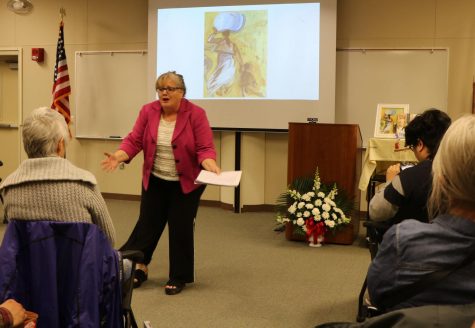
Julie Jordan Scott talks about the war raging in Bakersfield to the audience on March 20.
The next to speak was Julie Jordan Scott, who shared a poem about “a war that is raging right here in Bakersfield right now.”
The next performer was Fabian Tolan.
He did a cover of “Peace Song” by Never Shout Never.
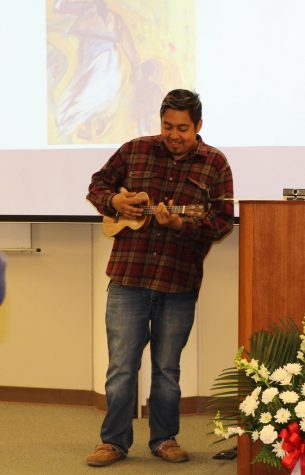
Fabian Tolan preforms a cover of “Peace Song” by Never Shout Never at the Levan Center.
The last to speak was Portia Choi.
She created a presentation featuring the history of the Korean war, and she read some poems from her book, “Sungsook: Korean War Poems.”
Choi began by saying her Korean name is Sungsook.
She talked about the color significance of the North and South Korean flag.
One of Choi’s poems was about her memories growing up titled “Ball of Rice.”
“My ball of rice: nice warm, light and bright. / Where is mother? / Where is sister? Gone. Alone.”
At the end of her presentation, Choi answered questions from the audience.


